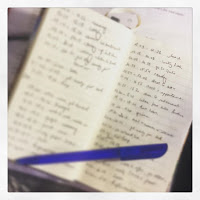168 Hours Time-tracking challenge
One of the first bloggers I started to follow during my PhD journey was Laura Vanderkam. While her world is very different from mine, and my view of the world may be not similar to hers, I always liked reading her blog posts, and more than seven years later, I still enjoy her writing style.
The first book I read by Laura Vanderkam is “168 Hours: You Have More Time Than You Think”. Again, my world and my experiences are quite different from hers, and when I was a PhD student, hiring somebody for cleaning or other chores would have been financially impossible. Nonetheless, I enjoyed reading the book, and I was inspired by it to consider my planning on a weekly level. Add in the weekly template of Dr. Golash-Boza and Dr. Pacheco-Vega , and you have all the elements for my time-scheduling approach. It took some iterating, and I constantly adapt to changes in life and general work demands, but my basic block of time is a week.
When Laura Vanderkam wrote about her time-tracking challenge earlier this year, I knew I wanted to have a closer look at my time as well. I’ve used software tools in the past to track the time spent on my office computer, but that just gave me an idea of how I spent my time at work. To have an idea of everything, I decided to track my time for 168 hours, from January 18th, 9PM to January 25th, 9PM. I used a little notebook that I carried in my purse to write down exactly what I did and when, and at the end of the week, I calculated everything.
As Laura Vanderkam points out, when she asks people to track their time, they often may say that “this week was not a typical week”. My week, too, included almost an entire afternoon with medical appointments, and some blood work at another point that had to be done. The fact is, there is no such thing as a typical week. As such, the results of my 168 hours give you an idea of what a week in January 2017 looked like for me. I compiled my results into different categories to make the overall breakdown clearer.
The first category is Work. Even though I missed an entire afternoon because of the medical appointments, I worked 51 hours. The categories of work activities that took most of my time were: email (8 hours), writing papers (8 hours), research (7 hours), writing my book (5 hours), teaching (3 hours), and meetings (4 hours).
The second category is Hobbies, for which I tracked 26 hours. I had a cut in my finger, so I couldn’t play music. The categories that took the most time were reading (8 hours, not counting the time I listened to an audiobook while cooking or doing other chores), yoga (3 hours), walks (2 hours), and some other categories. I also played Zelda for two hours that week, something I hadn’t done in a long time.
My third category is Personal, for which I logged 80 hours. I slept 65 hours, which corresponded to the needs of my body at (then) thirteen weeks pregnant (the fatigue of pregnancy, it’s been overwhelming!). I spent 6 hours eating, 4 hours in getting ready in the morning, 3 hours in getting ready for bed at night, and 3 hours with medical appointments.
The last category is Chores, on which I spent 11 hours: 5 hours of cooking, 3 hours of putting things in place in the house, and 3 hours for groceries. I have help for the housework three times a week, so cleaning and doing the laundry are not my tasks anymore.
Have you ever logged your time for an entire week? How were your results? Are they similar to mine? If you would be interested in logging your time, please let me know – I’m very curious to learn about your results

